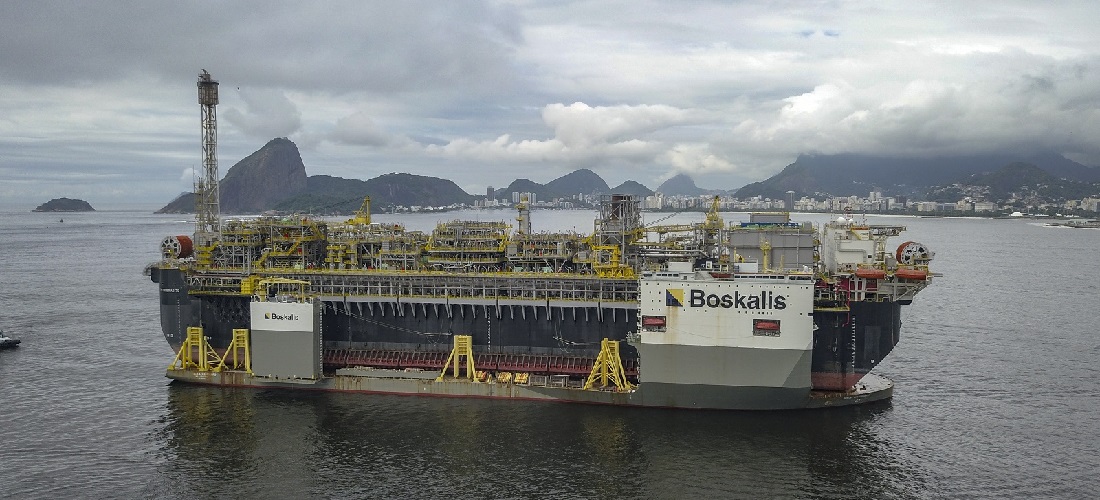
The P-70 oil platform arrives at Rio de Janeiro Port
Jan, 30, 2020 Posted by datamarnewsWeek 202006
On the 24th of January, the Port of Rio de Janeiro received the FPSO (Floating Production Stock and Oil transfer unit) P-70, which will operate in the Pre-Salt complex of the Campos Basin. The platform was delivered by the semi-submersible vessel Boka Vanguard, which anchored in Guanabara Bay for unloading. The complex mooring operation involved professionals from Companhia Docas do Rio de Janeiro, the Brazilian Navy and Rio de Janeiro Pilotage.
The Port of Rio de Janeiro Water Access Manager, Roque Pizarroso, stressed that “a maneuver of this size is very technical and requires a lot of expertise from the professionals involved”. This is because the ship is extremely heavy, carrying a platform weighing 78,000 tons, millimetrically accommodated on the vessel.
According to Pizarroso, “the mooring operation was a success, but the most important and delicate maneuver will still occur, when the Boka Vanguard vessel will submerge to unload the platform P-70 (Float-Off), which when unloaded will proceed to another anchorage area, where it will remain for approximately 30 days ”. According to him, during this period, commissioning, nationalization of the structure and preparations for the continuation of the trip to the Atapu 1 Project (Pre-Salt) of the Santos Basin will be carried out, among other actions.
Regarding the choice of the platform unloading location, the manager explained that “Guanabara Bay has sheltered waters, which perfectly meet all the technical requirements for depth, winds and currents necessary for the operation”.
What is the P-70?
The P-70 is part of the series of replicating platforms, which currently account for part of the production in the pre-salt area, with the operations already underway at units P-66, P-67, P-68 and P-69. Built in China, the platform has the capacity to produce 150,000 barrels of oil and 6 million cubic meters of natural gas per day.
The transport of the P-70 was carried out by the modality called dry tow, which means that instead of being driven by ocean tugs, the unit is loaded on a semi-submersible heavy lift vessel.
-
Economy
Aug, 01, 2022
0
Exports from Brazil to neighbors in South America soar in post-pandemic resumption
-
Trade Regulations
Oct, 20, 2020
0
Brazil negotiates new free-trade agreements with Arab countries
-
Other Cargo
Aug, 23, 2024
0
Tobacco exporters expect lower shipments offset by 25% revenue hike
-
Ports and Terminals
Mar, 28, 2024
0
Santos Port Authority summons stakeholders to speed up coffee exports

